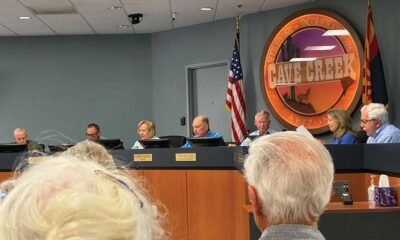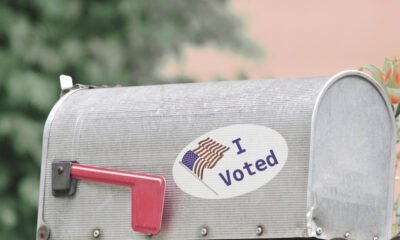Adrian Fontes
Fontes Stands Firm: Rejects Sharing Voter Names to Avoid ‘Blood on My Hands’

Arizona Secretary of State Adrian Fontes defended his decision on Monday to withhold the names of 218,000 improperly registered voters from conservative and Trump-aligned groups. During a hearing in Maricopa County Superior Court, Fontes stated, “I don’t want blood on my hands,” outlining his concerns about the potential fallout from releasing this information before the upcoming November election.
The conservative non-profit America First Legal, led by Stephen Miller, launched a lawsuit to compel Fontes’ office to release the voter records. They contend that improper registrations stemmed from a glitch in the state’s driver’s license database, which misidentified over 200,000 voters as having provided proof of citizenship.
The Secretary of State’s Office responded to the lawsuit, asserting that the records “will be available for inspection at the soonest available time” but not until after the 2024 General Election. Fontes expressed concerns that releasing the data would lead to “confusion, chaos, uncertainty and consternation” during a critical election period.
Fontes further articulated worries over the intentions of activist Merissa Hamilton, who represents the Strong Communities Foundation of Arizona and plans to distribute the information to state lawmakers. He indicated that past actions from these lawmakers have often fueled conspiracy theories about election integrity. “I’m going to fight like hell for a lot of those folks from having this list. They will not act responsibly with this list,” he stressed.
The Arizona Legislature has been criticized for its role in promoting unsubstantiated claims of election fraud since 2020. Events have included news conferences featuring lawmakers making baseless allegations, and a controversial hand-count audit that ultimately affirmed the original election results, showing more votes for President Joe Biden.
Fontes warned that if the voter data is shared, it might also fall into the hands of third parties, raising fears of potential violence. The Secretary noted that past rhetoric surrounding alleged voter fraud has already led to threats against election officials. “We’re already in danger,” Fontes declared, detailing how such threats have caused professionals in his field to reconsider their roles.
The voter registration glitch, impacting those who obtained their driver’s licenses prior to 1996, inaccurately classified them as having verified their citizenship. Affected voters comprise 79,000 Republicans, 61,000 Democrats, and 76,000 individuals from other parties. Those unable to prove citizenship may vote only in federal elections, per a 2004 ballot measure.
Maricopa County Recorder Stephen Richer recently sought a Supreme Court ruling to allow affected voters to receive federal-only ballots. However, the court concluded that state law does not permit county recorders to alter voter registration status unilaterally, while still allowing for challenges to individual voter statuses.
Fontes conveyed his commitment to transparency but stressed that releasing the list could endanger voters. Concerns about real-world violence are amplified as the election draws closer. Meanwhile, Hamilton claims her organization is non-partisan despite her public endorsements of various Republican candidates.
The court session showcased conflicting perspectives. Hamilton argued for the release of the data, dismissing notions that it would lead to violence or harassment. Conversely, Fontes’ legal team emphasized the risks associated with granting access to the information.
The group’s lawsuit initially sought to have the records released before early voting commenced on October 9. The court is yet to indicate a timeline for the ruling, as the issue of voter registration integrity continues to unfold.
Governor Katie Hobbs has called for an independent audit of the Motor Vehicle Division’s registration system following these revelations. Observers underscore the rarity of non-citizen voting, adding another layer to the ongoing discourse surrounding election integrity in Arizona.


















